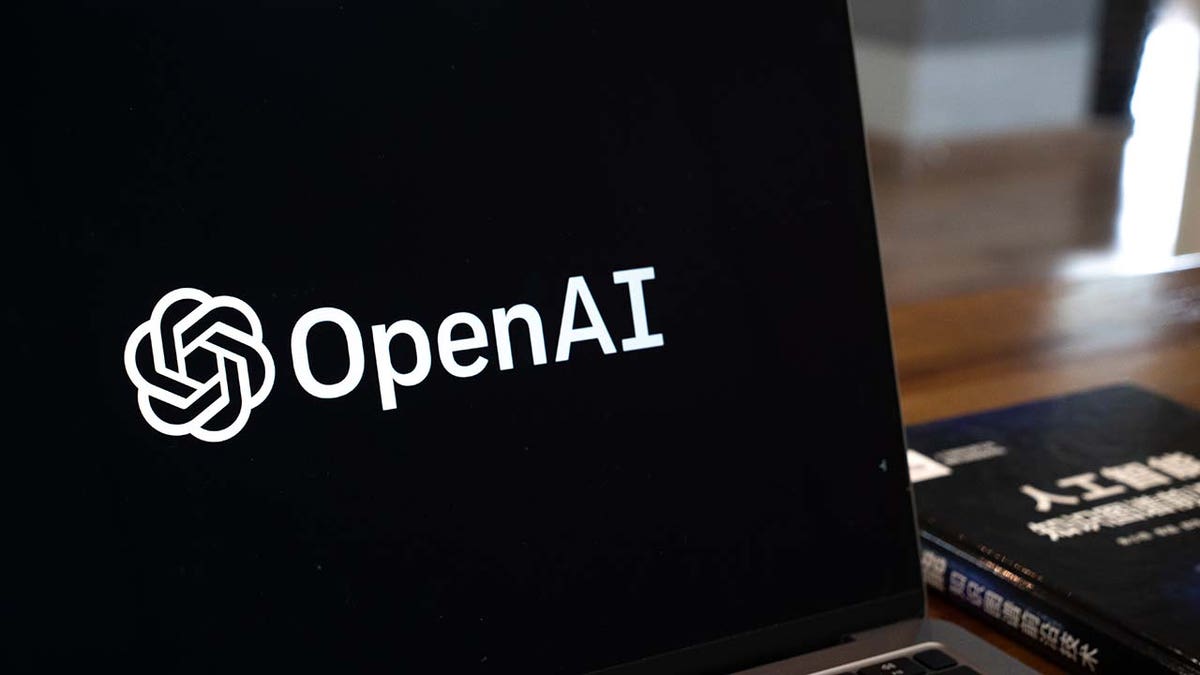How are college students adjusting to artificial intelligence?
College students Tabatha Fajardo, Jay Ram and Kyra Varnavas give their take on the development of AI in the classroom on 'The Story.'
Rep. Don Beyer, D-Va., woke up early last Thursday morning to study, but it wasn't a piece of legislation that was commanding his attention – it was coursework that he's learning along the way to earing a graduate degree in machine learning at George Mason University.
"I still have two or three more undergraduate courses," the 72-year-old lawmaker told Fox News Digital in an interview. "So I should be able to start the graduate courses by next fall, fall of 2024."
Most of Beyer’s time is taken up representing the 8th Congressional District of Virginia, as a senior Democrat on the Joint Economic Committee and the Ways and Means Committee. But he is making time to take classes alongside young students in pursuit of a degree that will let him better understand one of the fastest-developing technologies in human history.
"It was sort of humbling, after all these years of education in different universities, all that stuff, to realize I still had an enormous amount of undergraduate mathematics and computer science [to study] just to qualify for a graduate program," Beyer said. "But it's like planting a tree. It's just a long term hopeful thing."
AI PAUSE CEDES POWER TO CHINA, HARMS DEVELOPMENT OF ‘DEMOCRATIC’ AI, EXPERTS WARN SENATE

WASHINGTON - MARCH 23: Rep. Don Beyer, D-Va., speaks during the news conference on the debt limit in the U.S. Capitol on Thursday, March 23, 2023. (Bill Clark/CQ-Roll Call, Inc via Getty Images)
Beyer said he's not seeking the degree to "become the policy expert" but to learn what he can about a technology that has the potential to help people by sifting through enormous amounts of data.
"I was fascinated by the impact that artificial intelligence could have on the scientific problems facing us – in biology, medicine, engineering, and even social studies," Beyer said. "You know, why do we have so many… young women with depression and anxiety right now? Why don't young men seem to want to go to work, and rather play video games? I don't know what the answers are, but there's an enormous amount of data that we're generating every day, and being able to see the connections, the causal relations."
CLICK HERE TO READ MORE AI COVERAGE FROM FOX NEWS DIGITAL
"It's really hard for human beings when you have that much data. And it turns out that the math with the powerful computers now can actually help us find relationships which may in fact, be causal," he said.
Beyer told Fox News Digital he is working on a legislative initiative to explore the "possible or plausible disadvantages" of AI.

Beyer is studying his degree at George Mason University in Fairfax, Virginia. (Photo by: Robert Knopes/UCG/Universal Images Group via Getty Images)
"The most obvious is job elimination – that there are many different jobs that are going to be affected, specifically thinking copy editors, or even low level computer programmers," Beyer said.
The initiative would be focused on the negatives of AI in part because "we've done such a bad job at regulating social media, which obviously has huge positive advantages in terms of community building communication, but it also clearly has some negative edge – primarily misinformation, disinformation from… Russia and China, that get taken as truth because we didn't have any way to sort it out."
ALTERNATIVE INVENTOR? BIDEN AMIN OPENS DOOR TO NON-HUMAN, AI PATENT HOLDERS
He confessed that personal tragedy also plays some role in shaping his thinking, after noting AI’s advancements in breast cancer detection.
"I lost a friend to pancreatic cancer last summer because he'd had it for seven years," he said. "When they discovered it, he lived two months."
He said he's hopeul that the disadvantages to AI can be spotted quickly, after which policy makers can "figure out if we need to regulate and how."

The OpenAI logo arranged on a laptop in Beijing, China, on Friday, Feb. 24, 2023. The rally in Chinese artificial intelligence stocks is showing further signs of cooling amid media reports of authorities banning access to OpenAI's ChatGPT service. (Bloomberg via Getty Images)
Beyer said at this point, lawmakers lack the knowledge to take steps in any direction right now when it comes to regulating.
CLICK HERE TO GET THE FOX NEWS APP
"I think we’re all still babes in the woods," Beyer said. "Many people know how to spell AI, but they don't really know what it is and don't know how it's going to affect their lives, and so some people are just going to be really afraid of it because it's a new technology, and others are going to have unrealistic expectations about it."
"Right now, by the way, most of the attention is focused on the large language models like ChatGPT," he said. "But I think the real promise is going to be not just search engine capabilities, or the ability to write a poem in a minute, but its ability to change the way we live our lives."












































